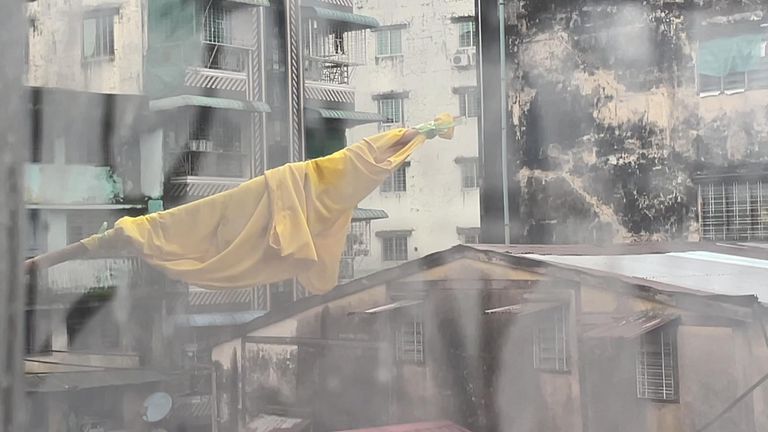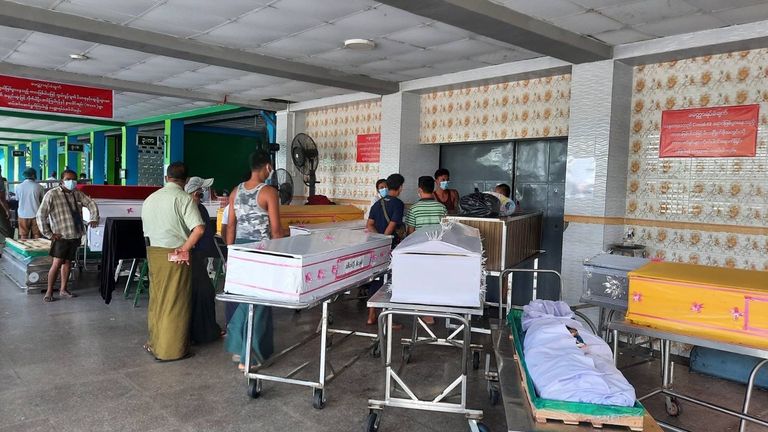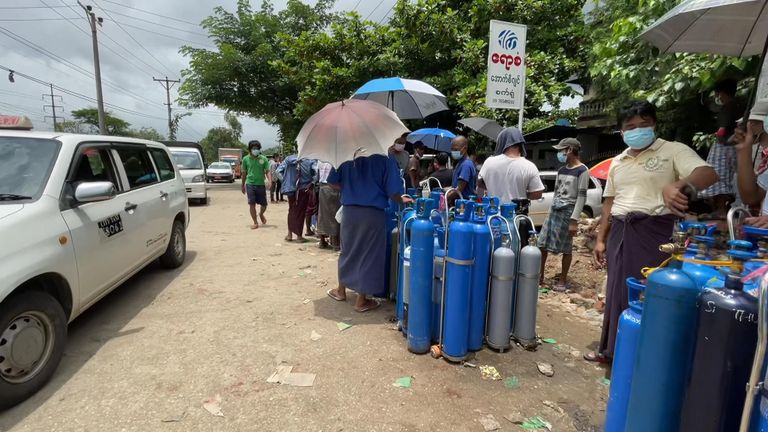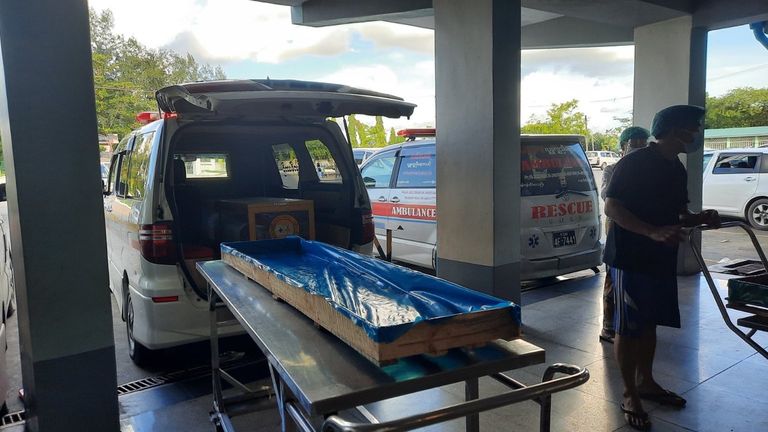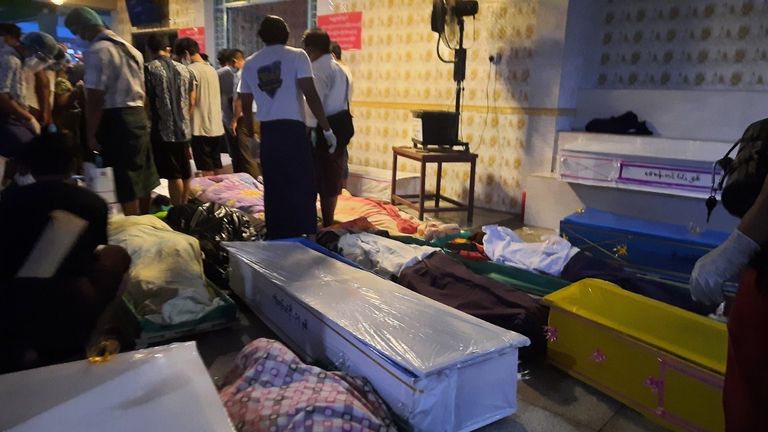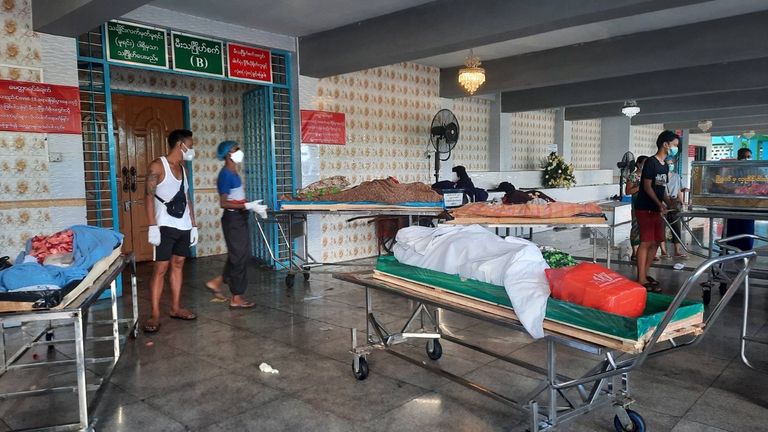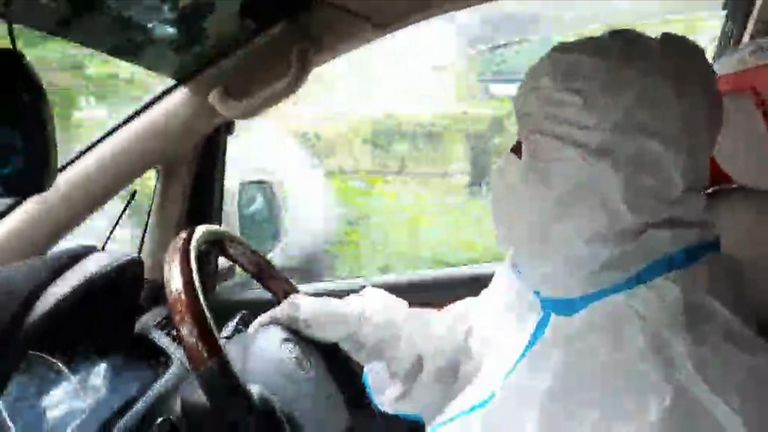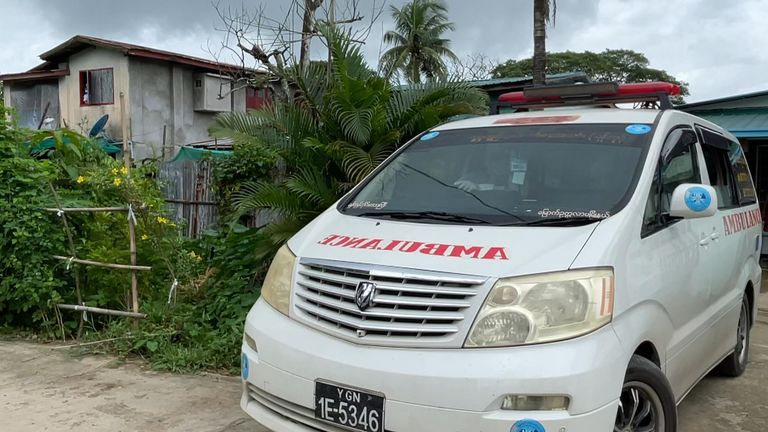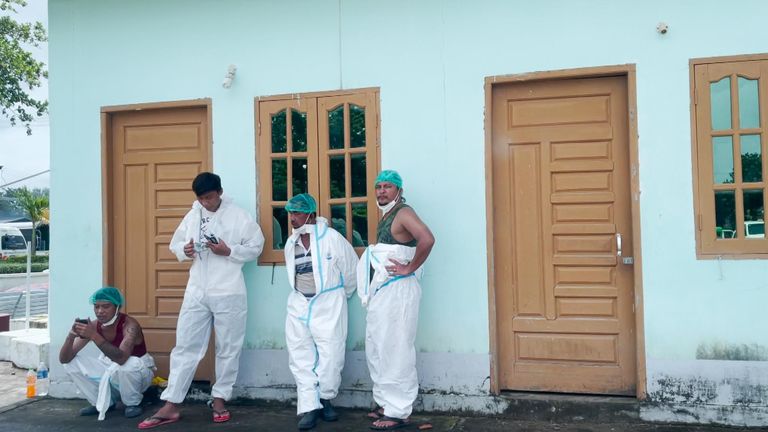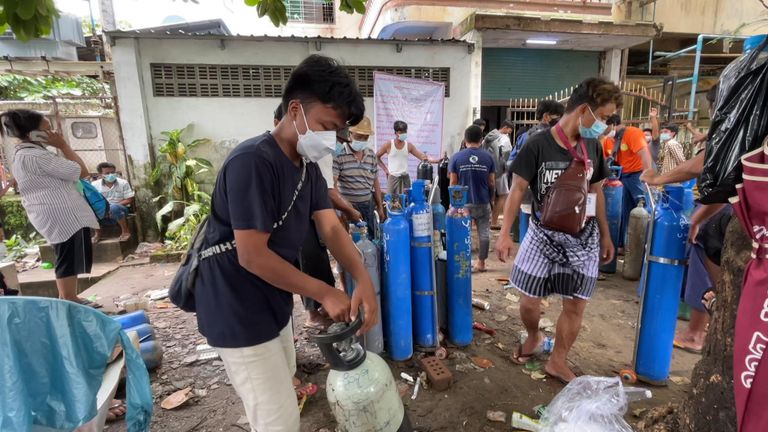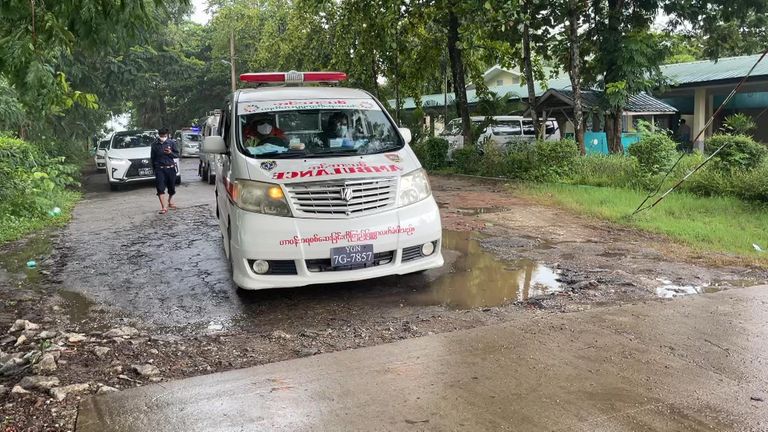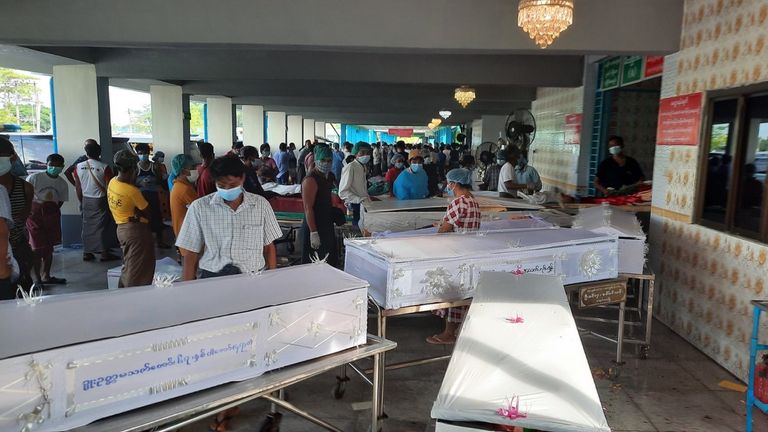COVID-19: People in Myanmar forced to ‘keep corpses in their homes for days’ amid worsening third wave
Bo Sein and his team of body collectors have never been more in demand.
Their ambulance used to carry the living.
Then a third wave of COVID-19 hit Myanmar, and now everyone they pick up is dead.
Hour after hour, they collect the bodies of the infected: people who survived a military takeover, only to be defeated by coronavirus.
There is no break in the calls for help from terrified and heartbroken relatives.
Bo Sein and his team of Yangon-based volunteers cannot keep up with the demand.
“The corpses are lined up day and night,” he says. “Some people have to keep the corpses in their houses for days until they can find a hearse to carry them so they become rotten.”
The line of ambulances at the crematorium is a sign of the crisis.
For hours they wait to deliver the dead.
One crematorium in Yangon told us they are now carrying out around 300 cremations a day compared to the usual 50.
In Myanmar’s COVID-19 outbreak, July was particularly grim.
As cases surged, thousands were confirmed dead.
Figures at the end of the month showed more than 60% of the country’s total COVID fatalities had died in July.
February’s military coup triggered a doctors’ strike that fatally wounded the health system – the Delta variant has all but finished it off.
That, plus limited testing, means some health experts fear the true scale of the outbreak could be much worse.
It is a reality that Bo recognises on the streets.
“The dead bodies are piling up,” he explains. “Some even took a day or two to get cremated. There is a disparity between the number of dead bodies and the number of funeral vehicles.”
The desperate now hang flags from their homes, begging for help: yellow flags for medicine, white for food.
One young man, who does not want to be named, hung a yellow football shirt from his balcony.
He tells Sky News his father has tested positive and needs oxygen.
But so too do many people’s relatives, and supplies have been running low.
So residents queue in long lines which snake down streets, as loved ones die waiting for lifesaving air.
“[My friend’s grandpa] was here queuing to refill two oxygen tanks,” says Myo Myo, who asked us to change her name when our team met her at one oxygen station.
In many places, the hunt is even more desperate after the military restricted private sales of oxygen to prevent “hoarding”.
Despite the pandemic, reports of abuses by junta security forces continue.
“We are very concerned,” Myo Myo says. “Soldiers are all around the places we are queueing, waving their guns.”
She adds: “Even their existence scares me. Some of them grab and carry the oxygen tanks back to their place. Some of them threatened us.”
No one is safe from the pandemic.
On the corners, teams of body collectors wait for the call.
But as they carry the dead, they mourn for their own.
Bo’s father was recently taken by the virus.
“My father wouldn’t have died if he had got medical treatment in a healthcare facility,” he says.
“I tried to contact the doctor and the doctor referred me to the hospitals.
“There are doctors, but since they joined the civil disobedience protest movement, they can’t come to the hospital.
“I took loads of money with me to treat my father and still got rejected. I couldn’t do anything but watch.”
Many people now are dying at home either unable to get a bed at the hospital or too frightened of the security forces to try.
Many of medics who can save them say they have been hunted and arrested for opposing the coup.
Some have gone into hiding, others are working from secret underground clinics or trying to run tele-surgeries from home.
At great personal risk, Dr T’s agreed to speak to me from southern Myanmar.
We changed his name for his protection.
His clinic has been raided more than three times in the last six months since the military takeover.
“The first time they shot an employee inside the hospital which they claimed was a protestor in hiding,” he says. “The second time [they came] to search for an activist.
“The third time, they abducted a nurse who took care of a patient from the people’s defence force (resistance movement).
“There’s a shortage of doctors. Some are still in prison, some of them contracted COVID in custody, a few died due to the direct actions of the SAC [junta].”
He says around 600 medics have had to stop working after security forces issued warrants for their arrests.
The inability of many to work safely, coupled with a shortage of oxygen, medicine and a properly functioning hospital system, is making the third wave even more deadly.
The UK’s ambassador to the UN has warned half of Myanmar’s population could be infected with coronavirus by the middle of August.
“The junta is weaponising the COVID situation for their own benefit,” Dr T says.
“They don’t care about the patients’ situation, they don’t care about the oxygen crisis, they don’t care about what’s happening on the ground, they only care about their power.”
We put the allegations to the military government spokesperson but so far have not received a reply.
The UN special rapporteur on the situation of human rights in Myanmar has called on the United Nations Security Council and member states to push for an emergency “COVID ceasefire” in light of an explosion of COVID-19 infections and deaths.
“Too many in Myanmar have needlessly perished and too many more will die without action by the United Nations,” Tom Andrews warned. “The UN must act immediately to halt the military junta’s attacks, harassment, and detentions in the midst of a COVID-19 crisis.”
Meanwhile, the military government says it will cut infection rates in August and is working on sourcing and manufacturing oxygen.
It, and opposition groups, are also separately negotiating more vaccine supplies.
The opposition National Unity Government’s COVID-19 task force told reporters it has secured four million doses with another two million being approved.
While in a televised address army chief and junta-appointed prime minister, Min Aung Hlaing, confirmed three million vaccines from China had arrived, with a further three million doses due in August. Two million more have been ordered from Russia.
Whether citizens will trust vaccines procured by military leaders whose forces have killed almost 950 people since February is another matter.
The fact is that COVID-19 brought the world’s most powerful nations to their knees, and so without help, Myanmar, a state crippled by a coup, now on the brink of collapse, doesn’t stand a chance.
Source: Read Full Article

